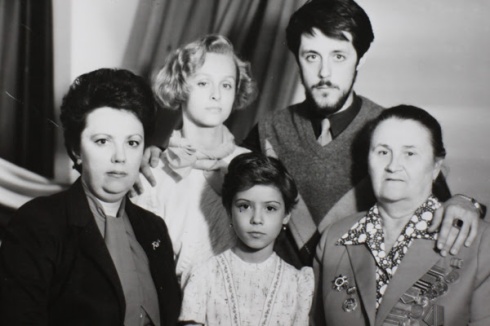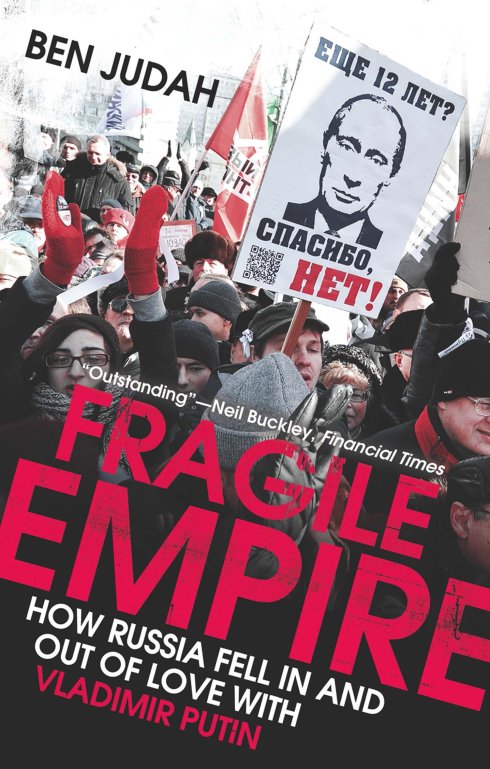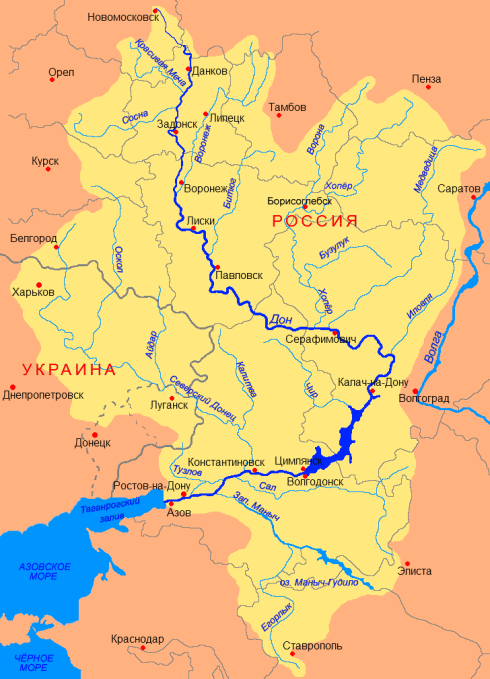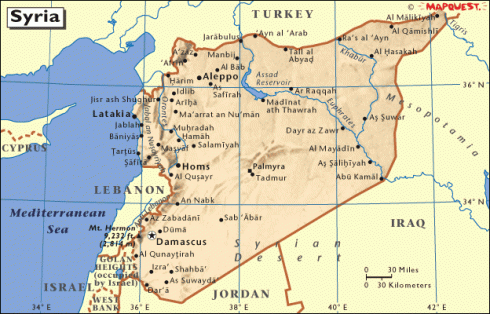
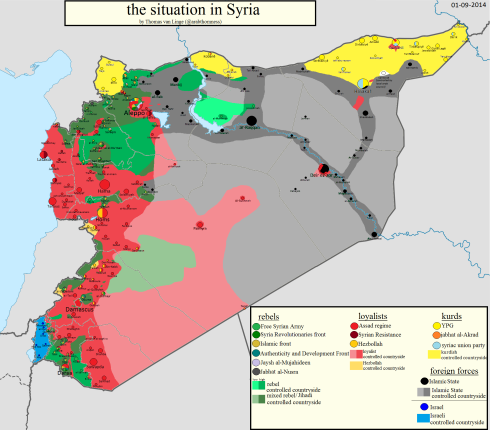
I’m going to have to write this post in bullet points of varying length, that I guess reflect the tragic fragmentation of my subject matter in some way, because putting it all together into a coherent “opinion piece” is as hard as finding coherent policy to deal with the problem itself has been. I was against talking about Syria in the beginning of its crisis as if it were an inherently fragmented and “artificial” colonial creation, as it had become the fashion to speak of most of the Levant at some point or another. I particularly objected to Andrew Sullivan’s obnoxious “Syria [or Iraq] is not a country” declarations. But since then, that’s become the reality – an insistent enough discourse makes itself a reality — so it seems to be more useful to take on all the regions, factors and players involved one at a time…and if I can bring them together usefully at the end, I will.
Russia and Assad: It’s obvious that Russia is pursuing its own agenda in Syria, but frankly — isn’t everyone? — so that’s no great cogent or original observation, and to be very frank, shouldn’t play into our response to either Assad or Putin, given the point to which things have reached at this point, because the degree to which you or I can stomach either Assad or Putin is not the point. The point is that right now I can see no great tragedy in an Assad-run — for how long can be decided later, with Russia (see below) — Russian semi-protectorate that would run from the Latakya Alawite coast down the Hama-Homs-Damascus-Dar’a, corridor, that would provide security and stability for even the region’s originally anti-Assad Sunni population, and even attract Sunnis from the rest of the country who could make their way there: such – I would think – is the ethical questionability of the various Sunni groups (aside from just ISIS I mean) into whose hands the original uprising has fallen and the degree of their war-weary victims’ terror; and — because I think it’s important to declare your subjective affinities before you can honestly put forth your hopefully objective suggestions or propositions – I hope such an entity would also provide a safe haven for part of what’s left of Syrian Christianity as well. (Yes, MESA girls, you’ve caught me again.) It would also be a good idea if we learned a little bit about the Assads and the Alawite past in the region (as it would be equally good for us to know something of Turkish/Kurdish Alevis as well), not to exonerate Assad for anything, but so that we know what we’re talking about before we start unproductively babbling about villains just sprouted out of the earth – like we did in Lebanon in the past about the Gemayels and Maronites or the Jumblatts and Druzes or southern Shiites and Hezbollah. This is homework one would like to assign to the Levant and the Middle East’s Sunni majority as well: a request that it examine its moral conscience, if such a thing exists, and its treatment of minorities in the past, but I understand that that’s probably a tall order that we can’t wait for them to comply with in order to bring some relief to the current hellishness. Assad remaining on as President of at least part of Syria is an ugly proposition. But more resistance is a luxury for Western intellectuals at this point.
So let Russia go for what it wants for now; it’s in most everyone’s interest and let’s try to turn it to everyone’s advantage instead of attacking her for every move she makes. ENGAGE RUSSIA. I beg everyone. A plea I will make later as well and repeatedly.
The Shiite crescent or triangle: This is the very real alliance of Bashar al-Assad, Hezbollah in Lebanon, a largely Shiite entity that’s essentially what’s left of Iraq, and Iran. It’s not a product of Israel’s paranoid imagination, but only Israel thinks it has any real reason to be worried about it and therefore Israel should be promptly ignored on every point and aspect of those worries.
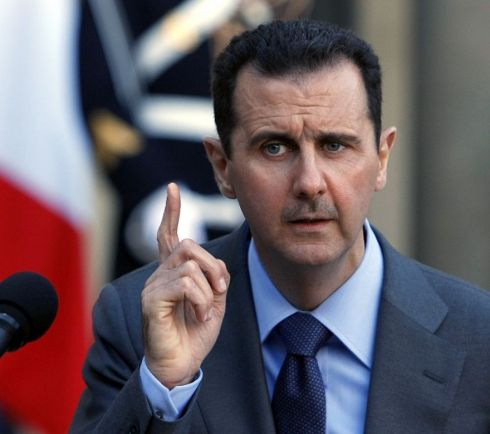
Bashar al-Assad
Neither Iraq nor the Iraqi army are functioning entities, so we can temporarily remove them from our discussion. I think I’ve addressed the moral “problematicness” of Assad: that there can be no solution in Syria till he’s gone, though, is a moralistic pose and not a truly moral position — sadly, one even Obama is fond of striking — and is an excuse for doing nothing and a recipe for letting the current holocaust continue. As for Hezbollah: whatever we think of its origins or the nature of its religiosity or its political ideology, it’s a highly professional organization with a highly professional, well-trained and hardened army, and the only Arab or other force that has put Israel in its place twice – took a little longer the first time but was pretty snap the second – and has pretty much served as an Akritai line that has kept it there since and, whatever its political tactics are (I honestly can’t say), it seems to me to be the one force that has kept Lebanon relatively stable (yes, as had Syria) for the past twenty years or so.
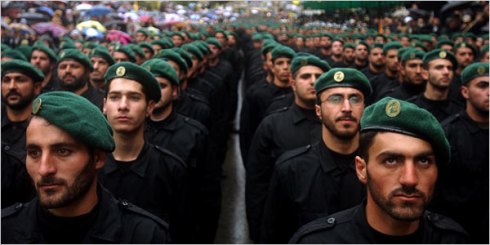
Of course, it does this with the massive organizational and material help of Iran. Which brings us to…
Iran: Get over Iran. It became a comforting cliché, with which the Middle Eastern Studies academic left aunanized itself for several decades: that the imperialist West had aborted every modern attempt at a democratic, civil society in the Muslim world and that that was therefore responsible for the rise of political Islam. Tell me which countries we’re talking about and who the leaders were who were going to lead them to this heavenly, secular modernity? The even more militaristic and fascist and statist successors of Kemal in Turkey? Look how that’s turning out and it’s still incomparably the best of the batch and, ok, there’s still hope recent setbacks can be reversed. Who else? Nasser and Egypt? Arafat or current Palestinian leadership? The Ba’athist successors of the Hashemites in Iraq? Maybe in Jordan? Ben Bella and Algeria? Bourguiba even and Tunisia? The Saudis? Jinnah’s successors, further east, or even Jinnah himself? Maybe the Afghan royal family? Who?
The only country in the Muslim world that in my humble opinion seemed to have had many of the prerequisites for a secular, civil society, perhaps a constitutional, truly assembly-based government, and a leader with an appropriately intellectual, bourgeois background and education — and accompanying democratic inclinations — was Iran and Mohammad Mosaddegh. And the Anglo-Americans destroyed that experiment. And yet Iran still seems to be the country, which despite the powerful institutional obstacles, has, on a popular level at least, the temperamental prodiagrafes for the development of such society and is poll-wise the most pro-American in the region. What is the rationale behind continuing to villainize and sanction and isolate? Ok, maybe not “what is the rationale?” But I’m simply calling for the acceptance of the fact that allowing Iran to open up to the world would inevitably – no, don’t give me Russia or China as examples – lead to an internal opening up as well, and both Iranians and the rest of the world have only to gain, when, and not if, that happens. Let it happen faster. As fast as you can.
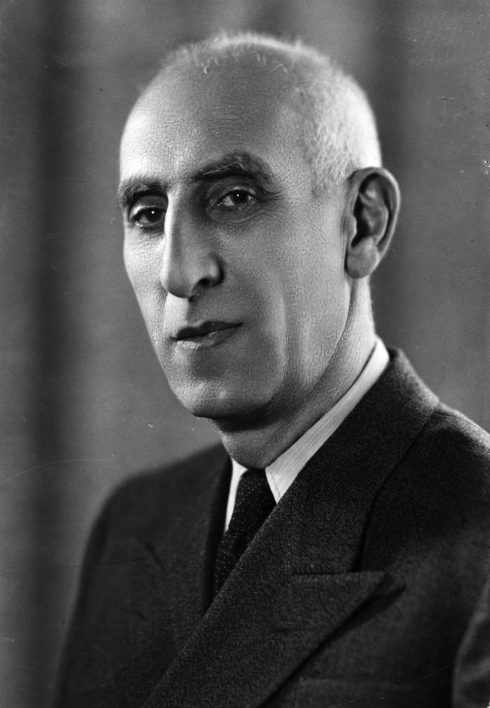
Mohammad Mosaddegh
Turkey: There probably isn’t a country that, though never “officially” colonized, is a better object lesson in how to endure the machinations, infiltrations, exploitation, hypocrisies and pousties of Western manipulation – from the 18th century to this day – and how to then flip them to your advantage like a bad-ass judoka than Turkey. In dismembering the Ottoman Empire, all the Great Powers did their best to make the process of our separating from our neighbours into independent nations as long and complicated and bloody as they possibly could. When after WWI, they realized the Turks weren’t going let them split even a remnant Anatolia into six or seven parts and give those away too…suddenly…Turkey…could…do…NO…wrong…and still can’t. It’s fabled “privileged geographical position,” which no Western power was able to grab for itself, allows it to do anything it wants: supress all and any pressures for democratic change; conduct a vicious decades-long civil war against – I dunno, can it still be called a minority when it’s one-fifth of your population – its Kurds; violently harass its supposedly Lausanne-protected Greek community till they all leave en masse, while invading Cyprus to protect its Turkish minority there…and on and on and on. And now that President-to-be-for-at-least-a-decade-I-figure Erdoğan has sat on the throne Turks themselves put him on, the anti-democratization process: the societal and governmental Islamization; the assassinations and imprisonments, the suppression of journalistic rights and other democratic voices; the bullying of neighbours and throwing around of irresponsible, expansionist language; the destruction of a painfully wrought peace process that Turkish Kurds showed remarkable maturity in struggling towards, and the unleashing of the formidable, American-backed and supplied power of the Turkish military on them once again; the probable aiding and abetting of the animals of ISIS in various ways, plus the shooting down of a Russian air force jet out of pure pissing-contest impulses; not to mention the ever greater and egomaniacal vandalizing of one of humanity’s greatest and most ancient cities – all continue. And the world breathes not a word. Obama did not even address the downing of the Russian jet: all I saw him do is rudely turn around in his chair at some banquet at the Paris Climate Change Conference and off-handedly say to some journalist: “Well, a nation has the right to defend its air space.” The next day six Turkish fighter jets flew almost two-thirds the way across the Aegean into northeastern Greek airspace , and we didn’t say a word and wouldn’t have had our call taken even if we had tried, since it happens on a practically monthly basis. NATO allies, you see…
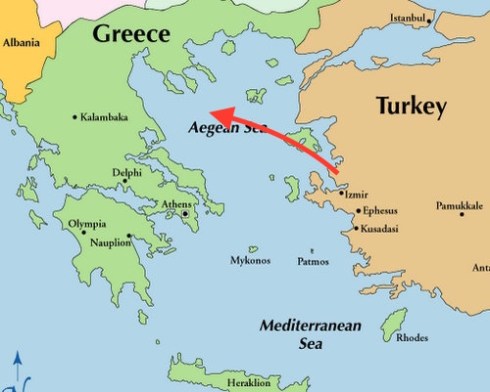
Nobody reported the story except the Greek press.
The Kurds: “I have a dream,” as they say, for Kurds: that they will recognize the fact that Iraqi Kurdistan with a capital at Erbil is already a de facto independent state and not complicate things in the neighbourhood by please resisting the urge to declare de jure independence.
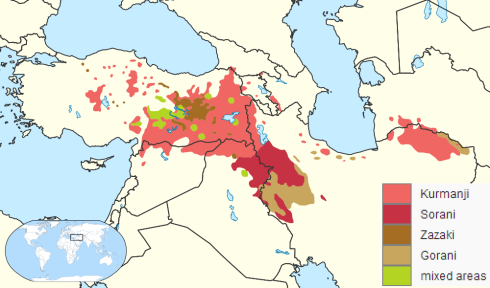
Kurdish-inhabited regions of the Middle East and Caucasus, according to tribal break-down.
This centrally located political entity can serve as the hub of a wheel of still-to-be-worked-for, autonomous, Kurdish regions encircling it, and by not insisting on independence and union, they will be able to put more resources and energy into developing what they have and not fighting to defend it forever. I don’t know; maybe the future of the world will involve the devolving of nation-states into affiliated groups of semi-autonomous units with perhaps overlapping or varying degrees of jurisdiction – Holy Roman Empire style – and the Kurds may be the first to experience this as a people and benefit from it: that is, to see diaspora (if that word really applies to a non-migrating group), or political “multiplicity,” as a finger in every pie and not as separation, and be able to reap the advantages of that. Plus, again, as vehemently secular-minded, it will hopefully remain what it has already become: another safe space for the remnants of Syro-Mesopotamian Christianity.
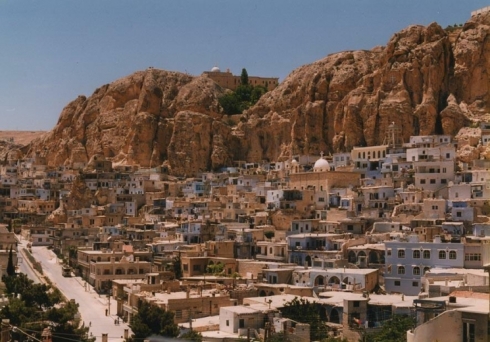
The Christian village of Maluula in Syria
Saudi Arabia and the rest of them down there: I admit that for a very long time I didn’t get this one. The fear of Russian power and the resentment of the Iranian Revolution, the obvious reasons for catering to an obnoxious Israel’s every whim and demand and the kid-glove coddling of Turkey all make some sense, though my ultimate point here will be that they no longer do. But the Saudis…no clue. Did any-one need their oil in particular? Wasn’t the United States itself already energy self-sufficient? Why? That the West always does what it does because Jews control Washington and everyone wants Saudi oil seemed to me to be the political theories of Athenian taxi-drivers.
Yet I was just speaking to someone from the ministry of energy here in Greece the other night and it turns out that compared to that of other oil-producing nations, Saudi oil (and I guess other Gulf State oil as well?) is unusually high in quality, demanding minimal refining and easy drilling as well, since its gigantic reserves are all close to the surface. The price of oil can plunge to rock bottom and they will still have monstrous amounts of a desirable product with which they can undersell any other country in the world and that will keep them filthy rich into the foreseeable future. And capable of funding jihadism everywhere. Including the spiritual “inner struggle” kind.
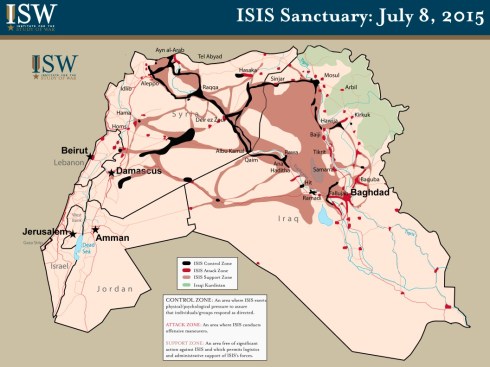
So we’ve ended up here, with a nice neat circle drawn around ISIS territory because that is our major problem and that’s the entity we’re looking to eradicate plain and simple. And it can’t be done without a profound shift in how we – I don’t how we want to define “we:” the West, the civilized world, how about just humanity? – treat and engage each and every one of the players involved in the above scenario. Because while our objective is to destroy ISIS, almost all the above policies are based on either almost irrationally selfish and small-minded views, or even more so, on a Cold War logic that simply no longer applies, and that will do little to impede the danger ISIS presents, in almost anyway you take at it or from wherever you look at it.
First and foremost and again: let Russia in. ENGAGE RUSSIA. We all have everything to gain and nothing to lose if we stop treating Russia like a pariah nation. Russian power is not a threat and can instead prove massively useful to the world if we bring Russia into the fold instead of trying to desperately keep her out of everywhere and even foolishly try and fence her in. It may be a little more complicated than a simplistic “more flies with honey” theory but whatever it is we choose to describe as Russian aggression, Russia sees as defensive and that may not be an irrational response from a powerful nation that sees itself treated as an amoral being that is constantly excluded from all the West’s major moves.
And I’m talking about radical engagement: not just lifting sanctions and trade blocks and visa requirements. I’m talking about making Russia a part of the European family of nations, as laughably dysfunctional as that family may be looking right now. Why are Montenegro or Georgia on the list of candidates for NATO membership — Montenegro probably as some sleazy old promise offered to it if it seceded from Serbia; and Georgia, one of the oldest polities in the Russians’ sphere of influence (for better or worse and partly of its own initiative at the start) and with a complicated love-hate relationship between them – while Russia itself is not? Too big to absorb. Well, yes, but my point is to stop thinking of her as an entity to control and absorb and start thinking of her as a political and especially military power that’s just too enormous to not have as an ally in the current struggle we’re engaged in.
ISIS (and Turkey to some degree) ticked off the Russians bad and they have already done more to weaken the “caliphate” in the past few weeks than all other Western actions combined. Is it escalating the conflict? There is no escalating this conflict: when your enemy is sworn to escalate it to the maximum, and there’s no reason to think they’re bluffing, you’re already there. Yes, there’s reason to fear that Russia – which uses Powell-Doctrine-type “overwhelming force” more than the United States ever has – will go too far and turn central Syria and Raqqa into a Chechnya and Grozny, but the best way to limit those kinds of excesses are to enter into some coordinated action with Russia and not just allow her to act alone. Because we’re going to need Russia when the air campaign needs to stop, when at some point it will. And that’s when I predict that Russia will also be willing to send in men on the ground and I don’t mean just a few special operations groups. While they’re certainly not eager to send their young men off to die in another Afghanistan or Chechnya, this has already – again, for better or worse – become a sort of Holy War for Russians and they will be far less squeamish about sending in troops than any other European society or even the United States at this point. And working with them on such an operation will not only increase its efficacy but limit the risks and excesses.
In the end bringing Russia in from the outside will also change it from the inside; as the nation itself feels less like it has to be on the constant defensive, then so will the Russian government adopt a more open and progressive attitude to its own internal political life. This is what we saw happening in Turkey in the early 2000s when European Union accession was still a negotiable reality; much of what Turkey and Erdoğan have turned into since are a result of those cards being taken off the table. Do it for everyone then, for us and for them. Engage Russia; it’s a win-win proposition.
As for the rest…
I’m sorry to say this, since being or acting or thinking positively about Turkey and Greco-Turkish relations has been one of my intellectual and emotional priorities for most of my adult life. But something when I got to Istanbul the day after the elections this November felt like a massive internal, tectonic shift for me — like something had snapped. Slap just half the sanctions and forms of isolation we’ve imposed on Russia and Iran on Turkey instead and let’s see how quickly Erdoğan’s tough guy stance lasts. And cut off military aid completely. As long as its going to a state that buys ISIS oil (which is the least we know of in terms of aiding them), as long as its being used, again, to terrorize its own Kurdish population into submission – cut it off completely. I would say take some of that aid and channel it into civil funding and assistance to Demirtaş and his HDP (Kurdish People’s Democratic Party), but that would probably be illegal, make them an even more vulnerable target and generally backfire. I would say do the same for Alevis in Turkey, whose agenda overlaps with both Kurdish and generally those of all democratic impulses there, but that would backfire even more horribly, since Alevis are a much, much more vulnerable target. (See: “Turkish Alevis and Syrian (or Lebanese…or Turkish?) Alawites — a Twitter exchange“)

Demographic distribution of Alevis in Turkey
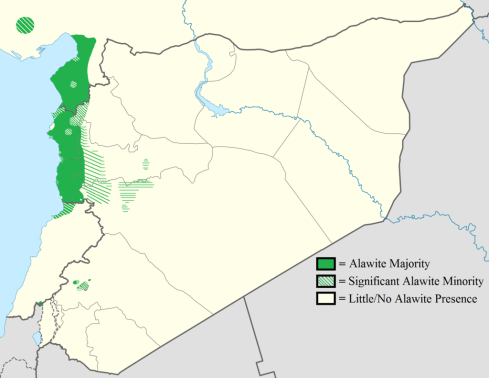
And distribution of Alawites in the Levant, which, aside from Syria, clearly shows major concentrations in Turkish Antakya and also northern Lebanon.
The Kurds: Give the Kurds EVERYTHING they need. They’re creating a society, both in Iraqi Kurdistan and in the internal socio-political life of Turkish Kurds that is nothing short of revolutionary in its civic-mindedness, democratic tendencies and secular steadfastness. Yes, nothing’s perfect there either but it’s by far the best we have. And the loose confederation of Kurdish regions that I spoke of earlier may have perhaps an even more strategically valuable position to offer the rest of the world than Turkey does. Beg Turkish Kurds to swear to abide by ceasefire terms despite all provocations by the Turkish state; insist that Iraqi Kurdistan not declare independence. And then give them everything they need, even if it means billions in aid. Because, along with the Russians, they’re the ones who’ll probably have to do even more of the ground fighting when the airstrikes campaign reaches its inevitable limits – and starts harming civilians, which it unfortunately already has — even though they now insist that they’re not spilling any more of their own blood for anything outside of Kurdish-inhabited regions.
The rest will – if it hasn’t already – cause the reader to accuse me of fomenting a Middle East wide Sunni-Shia war, with my sympathies, both personal and ideological, firmly Shiite and that I’m proposing Russia and the West join in on the Shia side. Perhaps it is. Slap down Erdoğan (for whom this is certainly a Sunni-Shia struggle) and keep doing so till his ego is under control or he becomes a lame duck political force. Hard, but not impossible, if Turks start to see the real price they have to pay for so stupidly supporting him. Ignore Israel for now and let the Saudis (for whom this is also certainly a Sunni-Shia Struggle) stew in their own juices and cut off oil purchases if they try anything more radical. And as part of the inevitable opening of Iran and the inevitable growth of its role on the world stage, let it, Hezbollah, the, yes, despicable Assad and the, yes, still dubiously motivated but driven and highly motivated Russians all go to work on ISIS, Da’esh, whatever, and its ridiculous, vicious “caliphate.”
Sound risky? Yes, I know it does. It is. Got a better idea?
–
Comment: nikobakos@gmail.com
–
Tags: Andrew Sullivan, Antakya, Da'esh, Da'ra, Druzes, Hama, Iran, Iraqi Christians, ISIS, Israel, Latakya, Raqqa, Russia, Sunnis, Syria, Syrian Christians, Turkish Alevis
